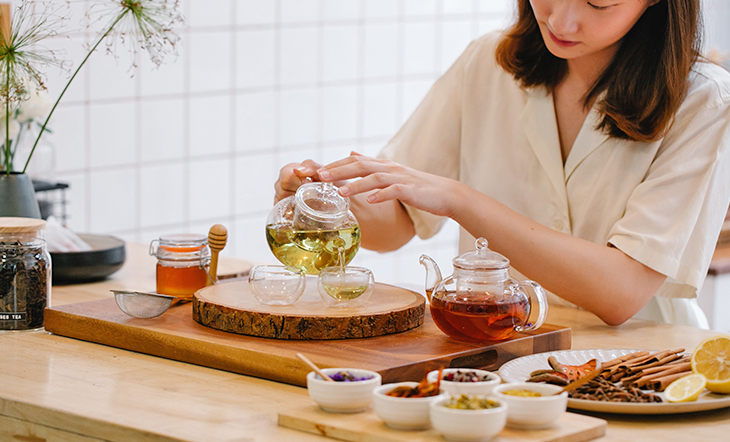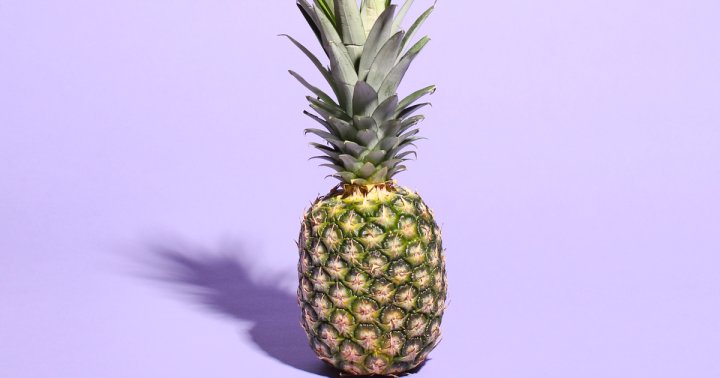Use Traditional Chinese Medicine to Be Your Healthiest This Winter (Here’s How)
Winter is notably a time when people feel at their worst. Less than desirable winter health occurs because motivation dwindles and all those holiday indulgences. Everyone feels exhausted, bloated and just not themselves. One thing many people do is...

Winter is notably a time when people feel at their worst. Less than desirable winter health occurs because motivation dwindles and all those holiday indulgences. Everyone feels exhausted, bloated and just not themselves.
One thing many people do is try to maintain their summer and fall routines and the pace at which they were going at… only to leave them feeling fatigued, burnt-out and frustrated.
As a result, many people dread winter due to how they assume they are going to feel.
Winter does not have to be synonymous with feeling at your lowest point throughout the year (we’ll get into the how and why below). Using principles of Traditional Chinese Medicine is one of the keys to optimizing your health throughout every season, winter included.
Read on to learn about seasonal living, including the element and organs associated with winter, according to TCM. You will also learn how to optimize your health with lots of TCM winter health tips.
How to Incorporate Traditional Chinese Medicine Into Your Life to Stay Healthy This Winter
Perhaps one of the missing pieces in your health and wellness puzzle is a change in seasonal living addressing the way you eat, live and move throughout the year.
Stay healthy this winter by incorporating principles and insight from Traditional Chinese Medicine. It may even be life changing. Because when you feel well, everything is possible. Imagine feeling truly well all year long.
Although you may not believe it yet, it is possible.
As a quick summary of a vast and intricate system of medicine that is over 5,000 years old, Traditional Chinese Medicine (TCM), is a system of medicine that takes an individualized approach to each person to restore balance and homeostasis.
With that said, there are overall principles that anyone can adopt throughout the seasons. It’s important to note that TCM is not a strict protocol or a cookie cutter template of wellness.
Traditional Chinese Medicine is an approach that takes into account your current inner and outer environment and balances yin and yang by making small tweaks in your routine to nourish your body, mind and soul.
One of the key aspects of TCM is that you make gentle adjustments in the way you move, eat and live throughout the year.
Another key component is that TCM places equal weight on physical, mental and emotional health, and how it contributes or detracts from your state of wellness.
Winter is the most yin time of the year. Which means it’s a time to slow down, reflect, introspect and deeply nourish every layer of your being.
Winter, According to Traditional Chinese Medicine, Is the Season of Water
“Water is as subterranean as an underground stream, as dark and fertile as the womb, as enduring as the jade-colored sea.” ~ Between Heaven and Earth
Winter is a time of drawing inwards, resting and restoring for the next season.
Just as many trees lose their leaves, the branches frost over, and the energy moves inward… it’s natural and normal that we do the same. It’s a time to slow down, reflect and adjust the high-speed pace that you may be moving at through your days and weeks.
Winter is the time where life slows down and matter and energy concentrate.
Winter is the most yin time of the year. Slow down, reflect, introspect and deeply nourish your being.
Although winter can seem quiet, still, and even lonely at times… there is a powerful and purposeful regeneration process that is occurring deep within. If you nourish yourself during this season properly, you will emerge in the spring with an energized renewal; a blossoming.
“During this period of hibernation the essence of life persists in the most primitive state.” ~ Between Heaven and Earth
The Organs Associated With Winter, According to TCM: The Kidney and Urinary Bladder
Throughout the year (and even at different times throughout the day), there are certain organs that are more dominant and play a more important role.
The kidney, according to TCM, is where our essence (our life force) resides. In TCM, the function of the kidney includes and goes beyond western physiology.
The best way to think of the energy reserve that is stored in our kidneys is like a savings account. You are born with a certain amount of savings, and the pace at which the money is spent depends on what you eat, how you move, live and take care of your unique self.
For example, if you’re living off of caffeine, under-fueling and over-exercising, you’re going to burn through your savings account of energy a lot more quickly than if you were taking time to rest, eat nourishing foods, and be more gentle with your body, mind and soul.
The winter is the time the kidney needs the most nourishment.
Potential signs of kidney dysfunction according to TCM principles:
Low back pain making it difficult to get through the day? Try these 6 Yin Yoga Poses for Back Pain (Video)
As thriving health doesn’t just include our physical state, it’s helpful to know that mentally the water element in TCM corresponds to imagination, perception, retention and reflection. Which further demonstrates it’s a time to slow down and reflect.
Here’s How to Stay Healthy This Winter, According to the Principles of TCM:
Use the below eight TCM tips for optimal winter health.
Take time to slow down, reflect, and imagine what you’d like your next season of life to look and feel like. Winter is the perfect time to take a look at your life and begin to envision the next stage of it Take stock of limiting beliefs and limited perceptions. As winter is the perfect time to reflect, it may be easier to see your patterns and beliefs during this time of year Bundle up when going outside in cold weather to avoid wind invasion (which is a common cause of colds in TCM) Incorporate restorative activity, such as yin or restorative yoga Eat more cooked and warming foods (e.g., soups, stews, roasted veggies and warm tea) Incorporate more warming spices (eg., cinnamon, ginger, cayenne, garlic) Use cooking herbs such as cornus, dioscorea, lotus and rehmannia Incorporate more bitter and salty foods (e.g., dark green vegetables, miso, seaweeds)Here’s a warming and Delicious Turmeric Latte Recipe to Boost Immunity
TCM does not contain absolute do’s and don’ts. It doesn’t say never have x, y or z during a season. It recommends making shifts in how we do things to maintain balance.
For example, if you’re really craving a smoothie in the winter, you can “warm it up” by adding cinnamon and ginger to it.
It’s all about shifting towards a state of balance. Since we all have a unique composition (some of us run hot vs. cold, or crave certain types of foods), TCM acknowledges that and takes a very individualized approach.
All foods are on a spectrum from “most cool” to “most warm”. Soft, juicy fruits are on the cooler end. Milk, cheese, eggs, meat and seafood are the most warm. Vegetables, grains, seeds and legumes are in between.
Therefore, in the winter TCM recommends shifting away from lots of fruits and raw vegetables, and towards more cooked meals with higher fat and protein content.
Limiting “colder” foods will help keep your digestion strong and regular, maintain your energy levels and support your immune system.
Avoid (Or at Least Eat Less Of) These 4 Foods for Optimal Winter Health:
Ice cold water Smoothies (or make sure to “warm them up” with spices such as ginger) Raw fruits and vegetables (swap your salad for roasted veggies instead) Sweet foods (winter is a time where salty and bitter foods should take priority, as they promote a centering and grounding quality)The Takeaway on Traditional Chinese Medicine, Seasonal Living and Winter Health
Although few people’s favorite season, winter is a really beautiful time to learn how to take care of yourself on a deep and nourishing level. It’s the perfect time of year to learn how to slow cook foods, do less and reflect more.
In TCM, the kidney is said to “open into the ears”, which further demonstrates the shift to talk less and listen more. It’s the ideal time of year to direct the usual outflow of energy to your usual demands and expectations and redirect the flow of energy to your inner ecosystem.
When you nourish yourself and truly rest during this season, you will bloom with a lot more ease and vitality in the spring.
If you want to get a customized TCM approach, look into a local registered acupuncturist or a Doctor of Traditional Chinese Medicine in your area.
Is it summer where you are and you’re looking for how to use Chinese Medicine to feel your best!? Use Traditional Chinese Medicine to Be Your Healthiest This Summer (Here’s How)
All included information is not intended to treat or diagnose. The views expressed are those of the author and should be attributed solely to the author. For medical questions, please consult your healthcare provider.

 BigThink
BigThink 
































